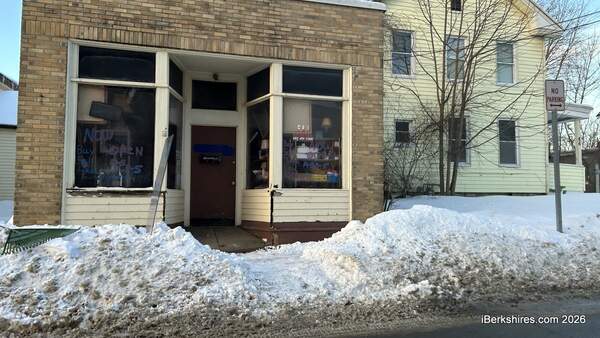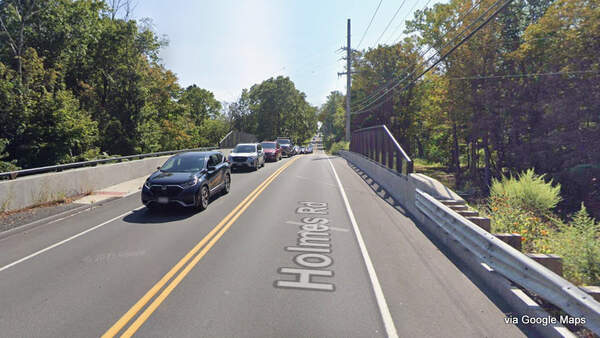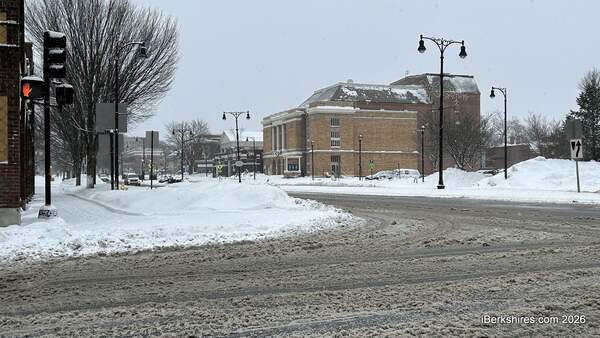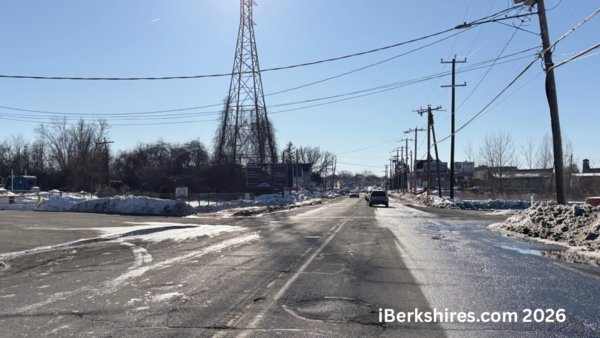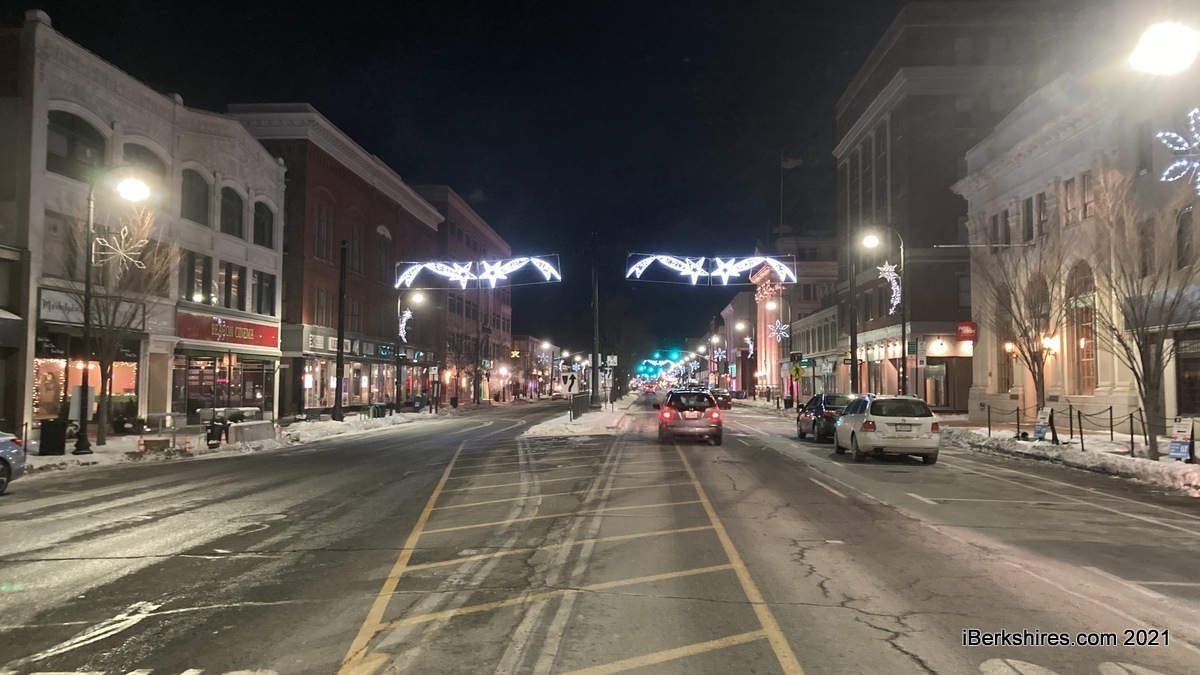
Pittsfield Committee Votes to Keep Bike Lane on North Street
PITTSFIELD, Mass. — North Street's new configuration survived the vote of the Committee on Public Works.
The Public Works Committee on Monday rejected a petition from Ward 2 Councilor Kevin Morandi to eliminate the new bike lanes and return to two travel lanes in a 3-2 ruling with Ward 4 Councilor Chris Connell and Ward 7 Councilor Anthony Maffuccio voting in favor.
Morandi brought this petition to the last City Council meeting, where he withdrew his motion and the council unanimously voted to send the petition to the Public Works Committee so that Public Services and Utilities Commissioner Ricardo Morales could give a detailed explanation of the project and answer questions.
This pilot program aims to make North Street a Complete Street that prioritizes all methods of transportation beyond just vehicles and to implement traffic calming measures. Late last year, the first block of North was made to merge into one lane and added a bike lane. The same was done to an additional block of North in front of the YMCA, where diagonal parking was introduced.
"With these changes, we're implementing, the goal is to eventually have some permanent solution for the problem we have on our downtown streets which is speeding vehicles and conflict points," Morales said in a presentation he gave to the commission.
The pilot is through the state's Shared Streets and Spaces Program, which provides cities and towns with grants as small as $5,000 and as large as $500,000 to improve plazas, sidewalks, curbs, streets, parking areas, and other public spaces in support of public health, safe mobility, and renewed commerce.
It started with a design grant that was accepted by the City Council last year when Pittsfield received funding to design various projects related to shared streets. Ultimately, it was granted $240,000 to perform some of the pilot programs in late 2020, two of them being the North Street bicycle facilities on the first block of the street and diagonal parking between Melville and Union Streets.
Before implementation, Morales evaluated the purposed changes with several city departments including the Police and Fire Departments and based on input by department directors and City Planner CJ Hoss, was able to make a better design and get the necessary funding.
In September, the city was awarded the grant through state Department of Transportation and, by the middle of November, 90 percent of the work had been installed.
Since then, Morales said he has been monitoring additional services that rely on the corridor.
In 2017, the city adopted the Complete Streets policy, which prompts the administration to consider providing a safer mode of transportation alternative from single-person vehicles in all of the decisions it makes in relation to roadwork.
"That's something that the city has to do," Morales explained. "And not only does that include projects that by adopting this policy the city received money to do, also everything else that the city does on the road has to be with Complete Streets guidelines in mind."
Multiple council members including Ward 5 Councilor Patrick Kavey, Connell, and Maffuccio reported that they had received complaints from their constituents about the changes to North Street.
Morandi, in particular, voiced his concerns about accessibility for emergency vehicles through the new landscape of the street, lack of public input on the pilot, and one-lane traffic creating a bottleneck effect on traffic.
"When you've got a major heart attack or a stroke or something and it's the difference between somebody dying or living, and they gotta go around the park to go to the First Street rather than a straight shot down North Street, I think I'm going to have a lot of EMTs and emergency personnel agree with me that time is of the essence."
Morales assured the committee that based on the width measurements of emergency vehicles and the space allowance that is provided when a car pulls over, there is plenty of room for them to pass in the one-lane configuration.
Though he voted against Morandi's petition, Kavey explained that his hang up on the pilot is in the lane variations on North from one to two and back. He is not against a change in layout for the downtown but finds the variance problematic.
"My only real concern with what is happening in downtown is the one lane, two lane, one lane, two lane, the going to two lanes merging, I watched how dangerous it is, especially for people who aren't around here," he said.
Ward 6 Councilor Dina Guiel Lampiasi, who spoke in support of the bike lanes in the previous City Council meeting, said the pilot will be an adjustment because people have driven down North Street in its previous fashion for their whole lives.
"This is a project that there's going to be growing pains," she said. "And it can be really difficult when we receive calls from constituents and seeing kind of the light at the end of the tunnel or helping others to maybe see what we're envisioning for those of us that are into this."
Guiel Lampiasi added that she is on North Street nearly every day and has not experienced any backup of traffic from the changes even though she takes her lunch break at infrequent times.
Tags: bike lane, complete streets, North Street,

